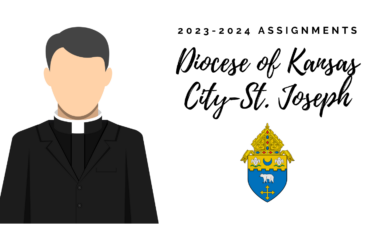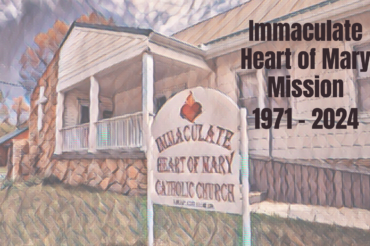Text/Email Scam Targeting Parishes
Megan Marley, media coordinator
ding! Your phone buzzes as it receives a text or email, and surprisingly—it’s an unknown sender who says he’s your pastor.
After brief pleasantries, he asks you to pick up a gift card for a sick friend of his, because he’s currently busy in a meeting. Oh, and he needs you to send him a picture of the card number and its pin so they can use it. ‘May the peace of the Lord continue to be with you’ he ends.
Is this a legit request for help from your pastor? No.
A rash of pastor/priest impersonation scams has recently spread across the country, and this diocese hasn’t been an exception. At least five or six parishes have had illegitimate requests for gift cards, money and/or personal information from scammers claiming to be the pastor.
“I got a text message on Mother’s Day from a parishioner saying their mother had received one, and shortly after I received a phone call from a fellow employee here at the church office who had received one too and wondered if I needed to call Father,” said Devin Reed, administrative assistant at St. Gregory Barbarigo in Maryville.
“By the morning it was all over social media—obviously a lot of parishioners had received the message,” she continued.
Father Albert Bruecken, OSB, pastor of St. Gregory’s, was out on retreat at the time.
“I was angry and worried that someone would be cheated,” he said. “Because I’m pastor, they think people want to help me.”
Fr. Bruecken said he initially thought someone had hacked his Google account, but there were a number of people who received messages who aren’t on his contact list. The office also said that his cellphone, social media accounts and the church database don’t appear to have been hacked.
On an ironic note, Fr. Bruecken said that the scammers even texted a parishioner who works as a county prosecutor.
“If you were going to scam somebody you wouldn’t send it to the prosecuting attorney, would you?” he said wryly.
Affected parishes are letting parishioners know of the scam via social media posts, notes in the bulletin, announcements, email and word of mouth.
“Most people recognize it’s not coming from me,” said Fr. Joseph Cisetti, pastor of St. Therese North. Still, he said the parish has been informing parishioners via email of the scam attempts, and will run an announcement in an upcoming bulletin column.
“Any situation where someone is asking you to give a gift card is a red flag,” explained Patrick Miller, Legal Counsel for the diocese. He also said that with any requests for giving to the Church, you should hear about it through the pulpit or another way authorized by the diocese or parish.
If you’ve received scam messages or have been scammed, you can contact your local law enforcement and/or the Internet Crime Complaint Center (ic3.gov), and report it to your cellphone carrier or email provider. But you still might not get your money back if you’ve been scammed.
“That third party isn’t going to return the money; it’s going to be difficult to track and to return,” Miller said of the scam.
What’s the best way response to scammers? No response.
“Anyone who receives such a text should ignore it,” Miller concluded.




